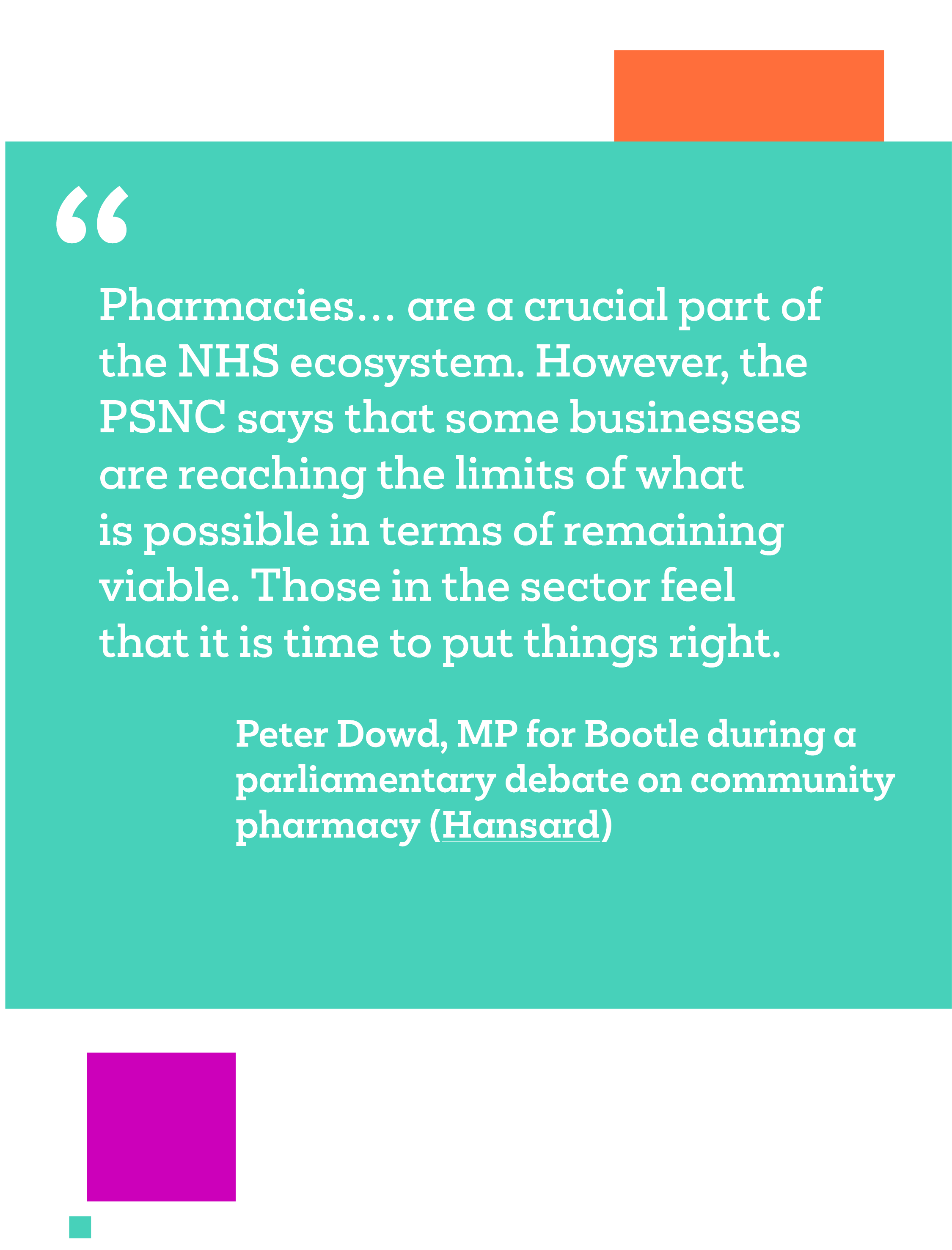Community Pharmacy England
Annual Report 2022/23

Comments from our Chair and CEO
Our Chair and CEO reflect on the past year, and what lies ahead.
Chair's comment
Everyone involved in community pharmacy knows just how crucial you are to so many people’s lives, each and every day. The work you do is detailed, relentless, often exhausting, but too often overlooked. This is a strong theme in this annual report, particularly when looking at the stark results of our 2023 Pressures Survey.
Yet you carry on. Day in and day out, breathing life into our high streets and offering a safe place for those in need of medicines or healthcare advice. You are one of the most inspiring sectors I have worked with - despite the increasing financial pressures as the cost-of-living soars and the realities of your ever-squeezed funding envelope bites, you keep going, delivering high-quality care to all those in need. This report also shows just how much pharmacies have achieved - yet you have so much more to offer.
The good news is that the Government and NHS are noticing this and starting to take some action to support you. Their commitment to additional funding this year – when all other sectors are also asking for more money, but few are getting it – shows we are beginning to win the argument. The dogged campaigning and analysis that we are doing about the value of pharmacies, about the risks if the current decline is allowed to continue, and about your potential to do so much more, are getting through.
It is not enough. And it is not fast enough. But it is a sign that as a sector we are doing and saying the right things, and we must continue to do so.
This progress is underpinned by the commitment and dedication of the committee at Community Pharmacy England. Our time together is intense as Committee Members – all pharmacy business owners or representatives themselves – bring with them the voice of a sector in crisis, challenging themselves to find ways forward. Solutions are not easy - if they were, we would have them in place by now – and there are many obstacles in our way, but the Committee and Executive Team continue to bring creativity, grit and unparalleled expertise to the table and work ever more determinedly to improve things for all pharmacies.
We have also been looking at how we work, and I’m pleased that we are now progressing through our governance review making positive changes for the future. Now more than ever before we are working hard to be close to those we represent, to hear your voice and be open to constructive criticism, fresh thinking and new ideas.
Over the coming year we will continue this dialogue to share with you our progress and our struggles. When we say that something is a challenge or blocker, you can be assured we will be looking for ways around it; and if we say something is a win, we will mean that it has been a real battle to get to this point, and that it is a genuine step forwards. Working together as a sector, and with some of the other influential people that we have partnered with over the last twelve months, I hope we can take many more of these steps forward. This is our goal for the coming year, and our wider purpose, as Community Pharmacy England.
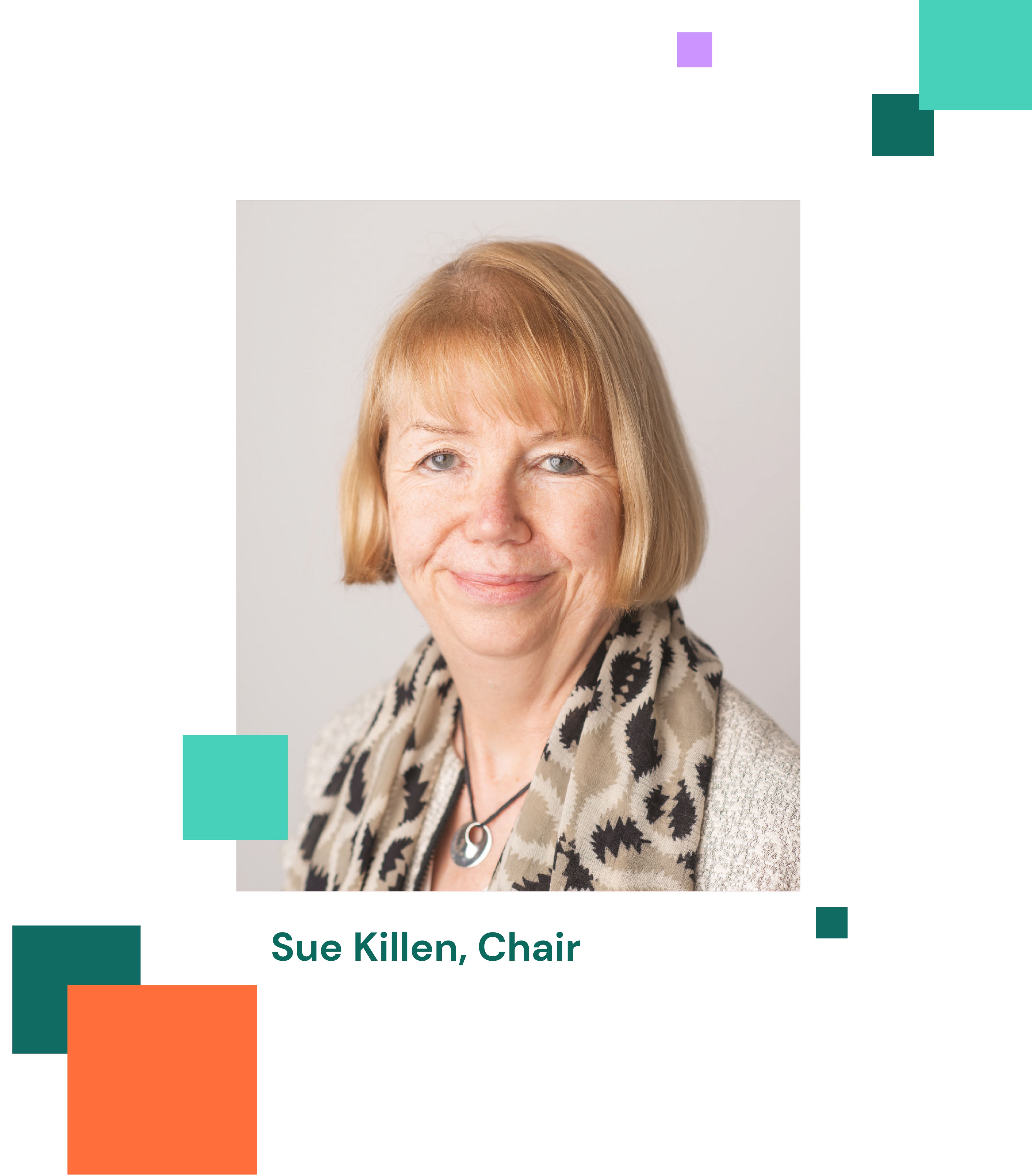

CEO’s Comment
For all those who own and work in community pharmacies, these past twelve months have been a time of intense pressure. The scale of the financial and operational challenges on pharmacies are unprecedented, and as demand for medicines and healthcare continues to rise, most pharmacy teams are working at well beyond full capacity – you have not once been able to catch your breath.
Yet once again pharmacy owners have shown their resilience and determination to push through whatever challenges come your way, guided by an unwavering commitment to your patients and local communities.
But enough is enough. And this is why throughout this last year we have ramped up our messaging and influencing work, telling Ministers and the NHS time and again that they simply cannot continue along this path of squeezing, and slowly destroying, community pharmacy businesses of all shapes and sizes.
We spent the year building on the bids we had put in for a funding uplift and for a fully-funded Pharmacy First service. In the autumn we secured a £100m margin write-off saving pharmacy owners from paying back funding that they desperately needed. And over the winter we joined forces with others to warn that the sector faced collapse, which would decimate primary care. We launched our political action plan for community pharmacy and built support for it across Parliament – MPs understand that the health of the nation is quite literally at stake.
We have been unrelenting in our campaigning efforts both in the public eye and behind closed doors, and have been more vocal than ever in the national media. And we told Ministers they could not afford to buy the new services they wanted to roll out from April 2023 and that they must introduce regulatory easements alongside further investment in the sector. But alongside these warnings we have also been highlighting to Government and the NHS the myriad solutions that community pharmacies have to offer, if they have the right support.
Just after the close of the financial year we received a glimmer of hope as the Government pledged a £645m investment into the sector which at the time of writing we are still concluding negotiations on. And our next phase of work will build on this, boosted by the independent and influential voices of the Nuffield Trust and The King’s Fund through work on the vision for community pharmacy which we commissioned.
We have also been taking a good look at ourselves as well, following the positive sector vote in support of the Review Steering Group’s proposals. Alongside preparing for our name change to Community Pharmacy England – giving us a stronger name to help us have more impact on your behalf – we have been looking at governance, supporting LPCs to make changes locally, thinking about how we can best represent the sector and support it through the unrelenting challenges, and developing a strategy to ensure that we are talking more often and more effectively with all the people that we represent.
As you read this report, I hope Community Pharmacy England’s dedication to advocating and campaigning for all community pharmacies shines through. Our resolve to fight for a better future for all pharmacies has never been stronger.
Community Pharmacy England is the new operating name of the Pharmaceutical Services Negotiating Committee (PSNC).
The year in review
2022/23: A year of milestones for Community Pharmacy England and the sector.

JUNE
Pharmacies in England provide 65 million informal consultations on minor health conditions or other clinical questions a year
Our 2022 Pharmacy Advice Audit revealed 1.2 million pharmacy consultations take place every week.
JULY
Transforming Pharmacy Representation (TAPR) Programme launches
Initiating a comprehensive reform programme of pharmacy representation in line with Review Steering Group recommendations, as well as work to rebrand to Community Pharmacy England.
AUGUST
Changes to discount deduction announced
As part of the Department of Health and Social Care’s (DHSC’s) drug reimbursement reforms, we agreed a fairer discount deduction system for pharmacies.
September
Seeking overhaul of the price concessions system
We escalated our concerns to Government officials responsible for medicines supply, warning that the system is broken and wider help is needed.
September
We secured a £100m excess margin write-off
Preventing pharmacy owners from repaying this significant sum to the Government amid increasing Drug Tariff prices.
October
Nuffield Trust and The King’s Fund start work on a new vision for community pharmacy
Both organisations are commissioned to develop a new vision for the sector, in line with the TAPR work programme.
November
Launch of political influencing campaign
To build wider political support for community pharmacies, ensuring that MPs and Peers across Parliament recognised the risks of current pressures on pharmacy services.
December
Antibiotic supply and pricing issues
We voiced our concerns on the Strep A antibiotic shortages and pricing issues, highlighting their severe impact on pharmacies and patients.
January
Pharmacy leaders urge Rishi Sunak to invest in the sector
We united with other national pharmacy bodies and the major chains to write to Prime Minister, Rishi Sunak, about sector funding, workforce, and capacity concerns.
March
Save Our Pharmacies campaign
Campaign website launched in collaboration with national pharmacy bodies, advocating for sector improvements and a public petition seeking fairer funding for NHS pharmacy services in England.
March
Firm position on Year 5 CPCF services
We cautioned Ministers, NHS England and DHSC against introducing new or expanded services or a Pharmacy Quality Scheme in Year 5 (2023/24), saying these would not be possible without additional funding for community pharmacies.
March
Public overwhelmingly back Pharmacy First
YouGov polling revealed strong public support for Pharmacy First, reaffirming our push for a fully funded service that would be beneficial for pharmacies, patients and the wider NHS.
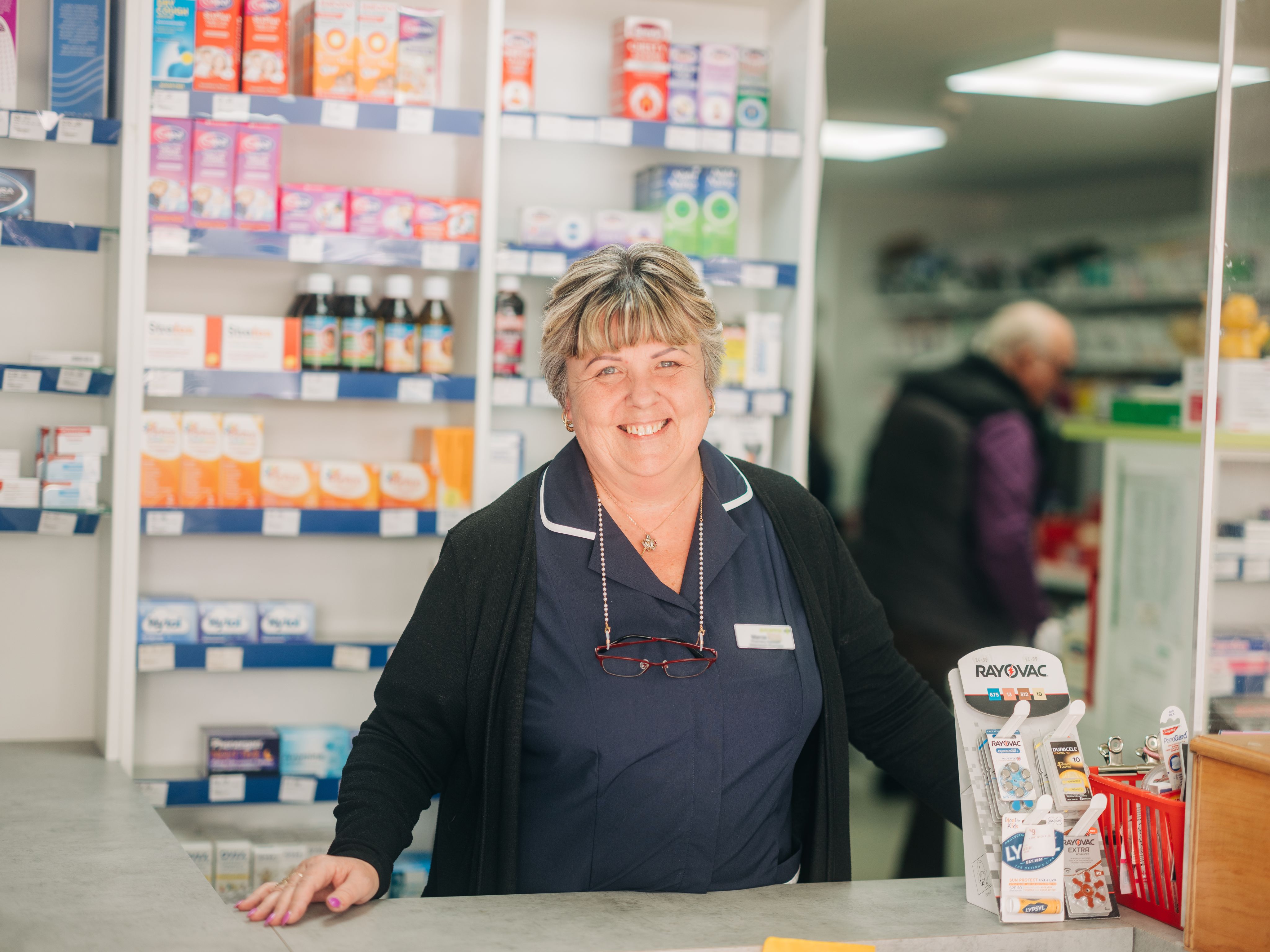

Championing community pharmacy
We’re advocating and campaigning for all
community pharmacies.
Over the past year we have significantly stepped up our influencing work. This is in line with our wider goal – supported by the sector - to build a stronger national voice for community pharmacy, with increased investment being covered by our reserves.
In Autumn 2022, we undertook a tender process for expert political influencing advice. Since then we have built strong support for pharmacy across Parliament, including helping to secure the recently announced £645m investment for the sector. Across the year we held numerous Parliamentary events to educate, inform and build support amongst Parliamentarians. At one such event, close to 40 attendees from across the political spectrum had their blood pressure checked to promote the new community pharmacy service. Other events focused on pharmacy pressures and our asks for the future.
We launched two linked Parliamentary influencing campaigns – one based on our four point action plan for pharmacy, and one using the Save Our Pharmacies identity developed with the other national pharmacy organisations. We have remained in regular communication with Ministers, Parliamentarians and both DHSC and NHS officials to ensure they understand the unique challenges pharmacies are experiencing along with the policy changes we want for the sector. This included building relationships with numerous new Ministers during the period of Governmental upheaval over the summer of 2022.
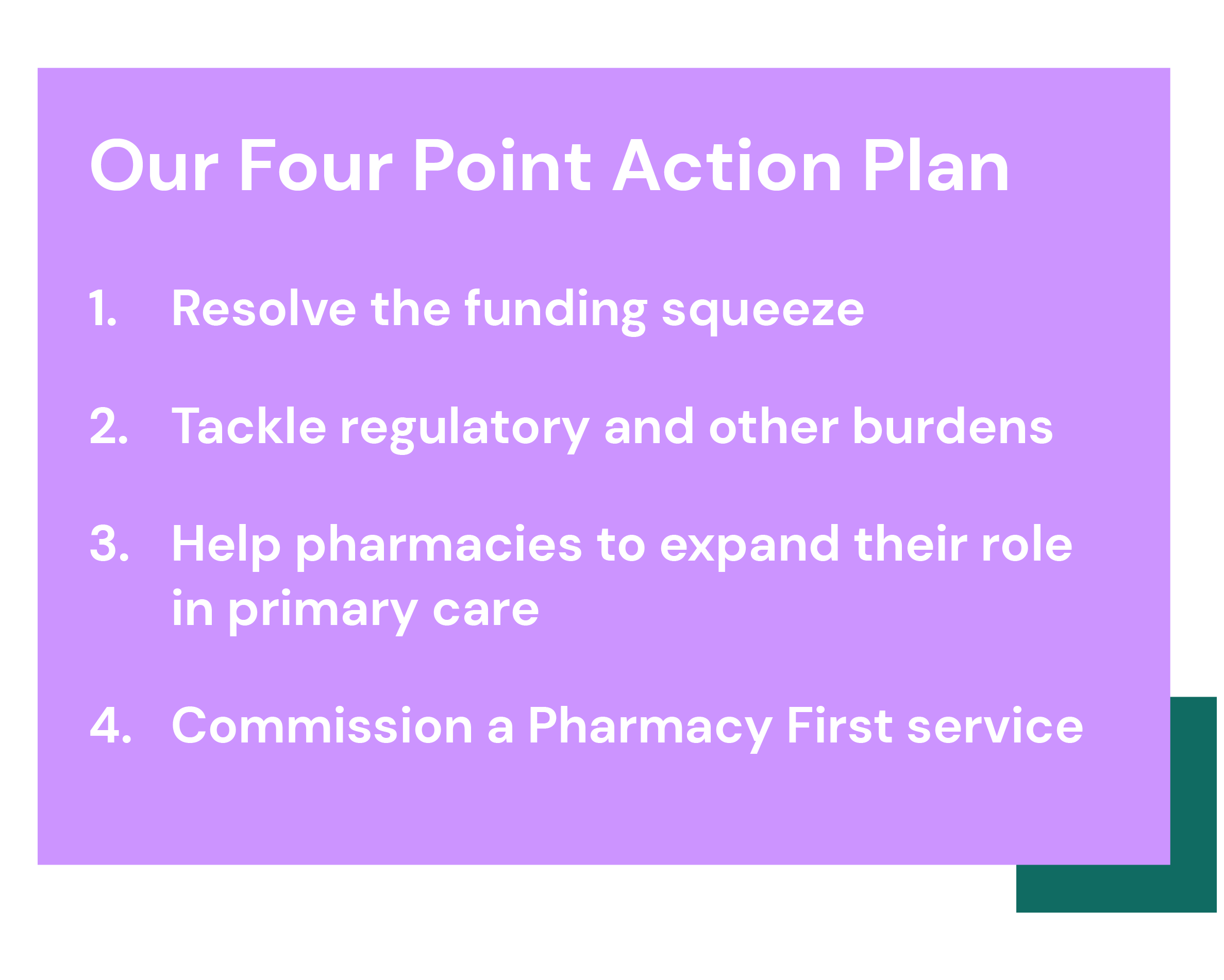
Our influencing tactics have included coordinating a number of letters to senior leaders at NHS England and to Ministers – some signed by pharmacy colleagues, and others by multiple MPs - seeking urgent support with the unsustainable pressures facing pharmacies. We have also supported MPs and Peers resulting in a great number of pharmacy-focused questions during Prime Minister’s Questions and Health Questions in both the House of Commons and the House
of Lords.
We responded to three Parliamentary inquiries over the past year covering prevention, Integrated Care Systems and digital transformation. We have also supported several pharmacy-focused Parliamentary debates, as well as developing many MP briefings on key topics such as pharmacy pressures, pharmacy funding and the potential for a Pharmacy First service.

National media spotlight
With over 80 pieces of national press coverage this year, we haven’t shied away from grabbing the attention of national media during crucial moments. We intensified our media efforts to spotlight the challenges facing our sector and call for action. In December 2022, our CEO, Janet Morrison, appeared on BBC Radio 4’s Today programme to discuss the antibiotic supply disruption and its severe impact on community pharmacies. Janet’s thoughts on the matter were also covered by the Sunday Times, Financial Times, Mail on Sunday, Evening Standard, and The Telegraph.
We worked hard to put increasing pressure on the government to support pharmacies amidst the funding crisis plaguing our sector. We took all opportunities to raise awareness about the critical strain on community pharmacy patient services and the urgent need for more funding. Our efforts secured coverage on Sky News, where Janet was interviewed on this topic.
In March 2023, the Daily Express also published results from the YouGov polling that we commissioned which highlighted that the public overwhelmingly backed the idea of a fully funded Pharmacy First service.

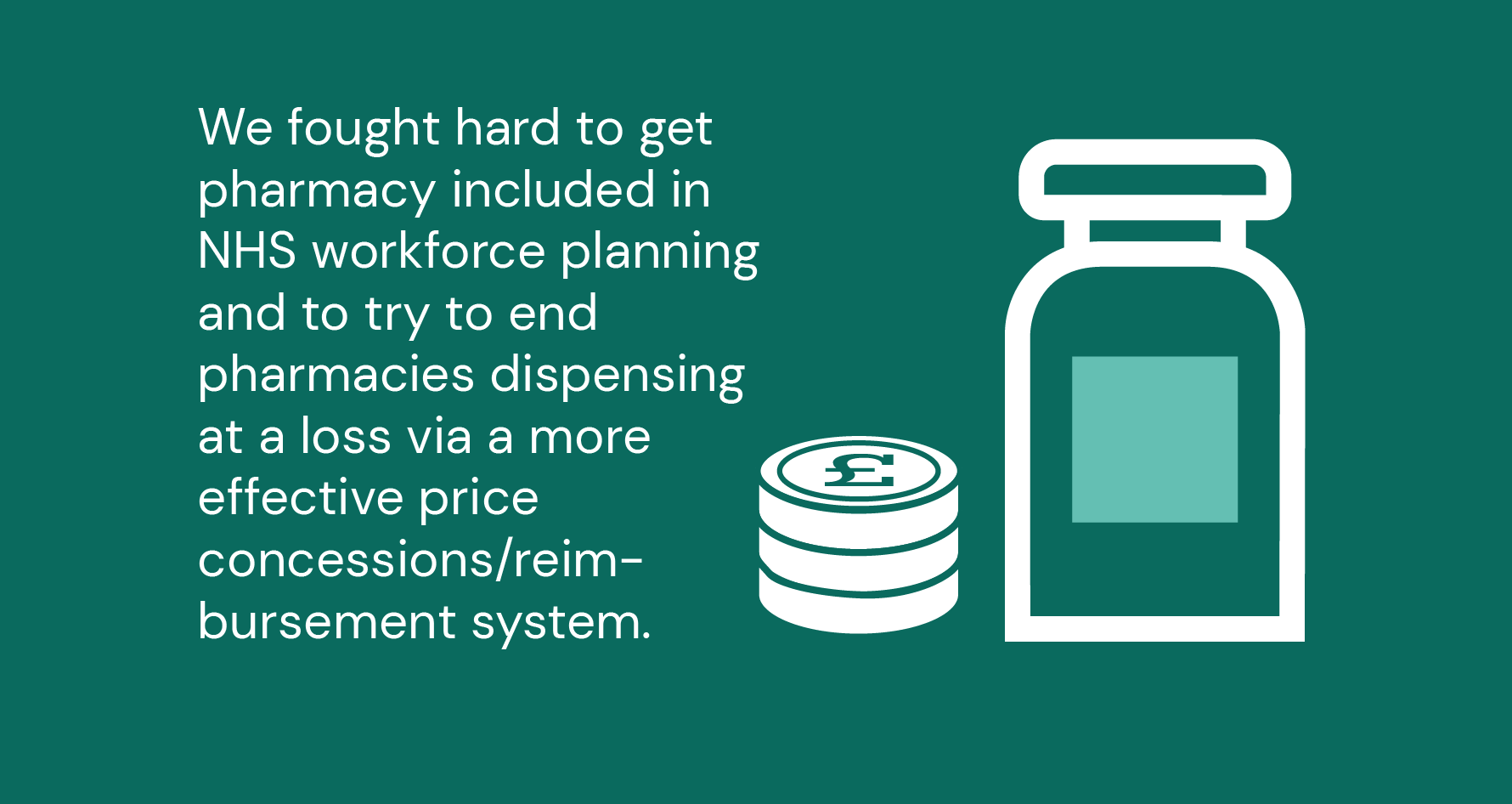
Fostering a united voice
We continue to take a collaborative approach to influencing. We initiated and worked on the ‘Save our Pharmacies’ campaign with the other national pharmacy bodies. This included a patient petition which attracted close to 100,000 signatures. A3 posters were also sent to pharmacies across the country, as well as other digital and social media resources. Next steps for the campaign are being considered by the national pharmacy bodies.
We also expanded our work with the other primary care professions as we believe that all of primary care needs prioritisation and additional investment, not just a rearrangement of the deckchairs. And we continue to provide financial support for the Pharmacy All-Party Parliamentary Group which also held several events throughout the past year.
We are proud to have strengthened relationships with the network of 58 local pharmaceutical committees (LPCs) throughout the country, helping to better coordinate local and national influencing for community pharmacy. We hold regular fortnightly meetings with LPC representatives, to not only provide updates on pressing issues, but also to facilitate shared learning and promote best practice amongst the wider networks. We also host an LPC conference annually to bring local community pharmacy leaders together for more in-depth discussions.
Fighting for funding
Record extra £645m investment in pharmacies and £100m margin write-off achieved.
Throughout another very difficult year for community pharmacies – with sustained and severe financial and operational pressures - we have been in constant discussions with the Government and NHS to ensure fairer funding for the sector.
During an intense period of negotiations in 2022 we fought hard for extra financial support, and following these discussions we launched a new influencing programme which ultimately secured the biggest commitment to invest into community pharmacy for years.
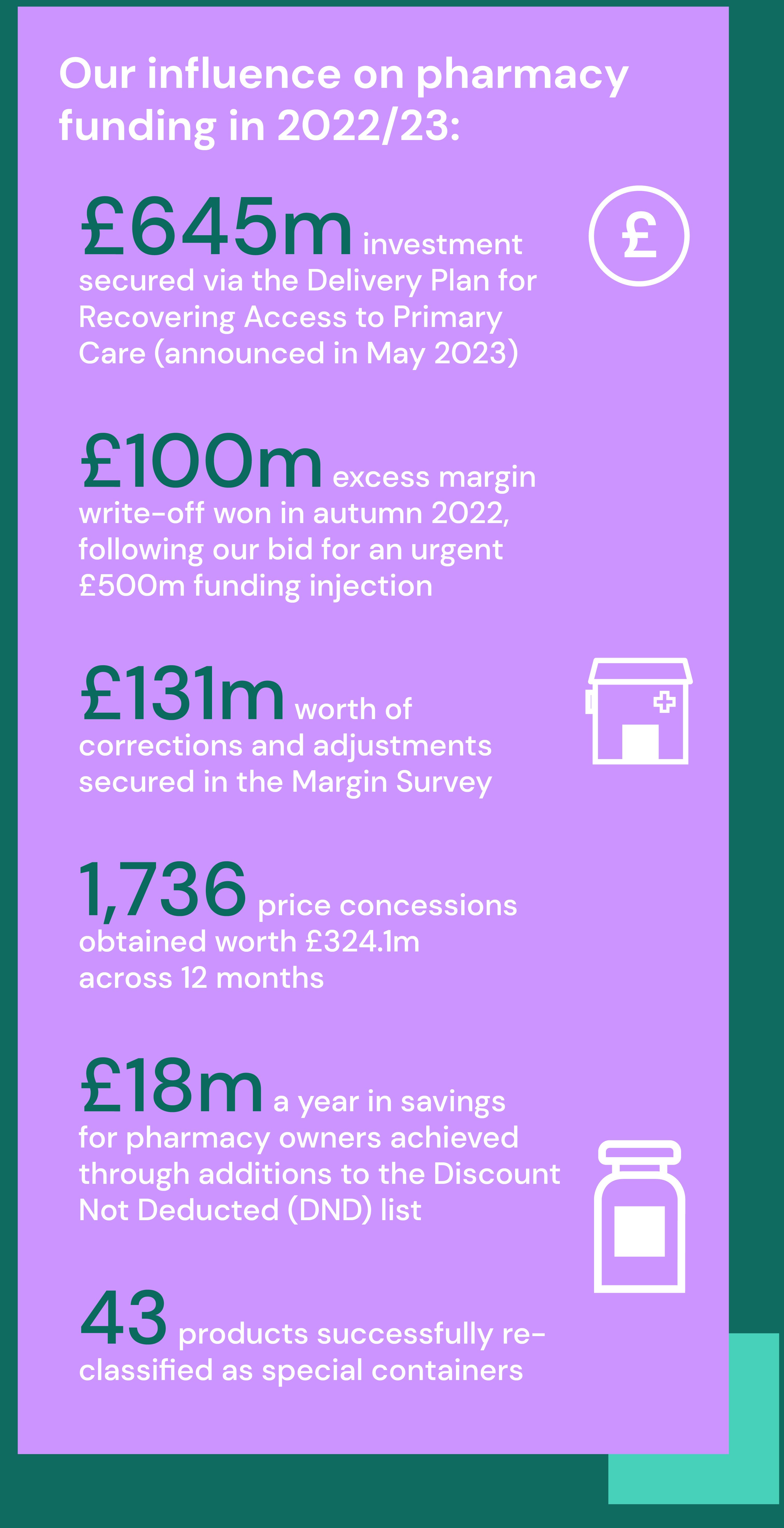
CPCF Funding for Years 4 and 5
In spring 2022 we commenced negotiations on the Community Pharmacy Contractual Framework (CPCF) for 2022/23 and 2023/24. As part of this we put in a detailed funding bid (outlining the many inflationary and other cost rises that pharmacies were facing) alongside a bid for a fully-funded Pharmacy First service.
Critically, in these negotiations we secured an extension of the Transitional Payment to recognise ongoing financial pressures, and a one-off £100 million excess margin write-off. This hard-won margin concession meant Drug Tariff prices remained higher and prevented pharmacy owners from having to pay back a significant sum to the Government, which simply would not have been affordable.
The deal also included commitments to commission an independent economic review of community pharmacy businesses – which should help to show the scope and scale of the unsustainable pressures on pharmacies - and to review the implementation of the Price Concession system to make improvements for pharmacy.
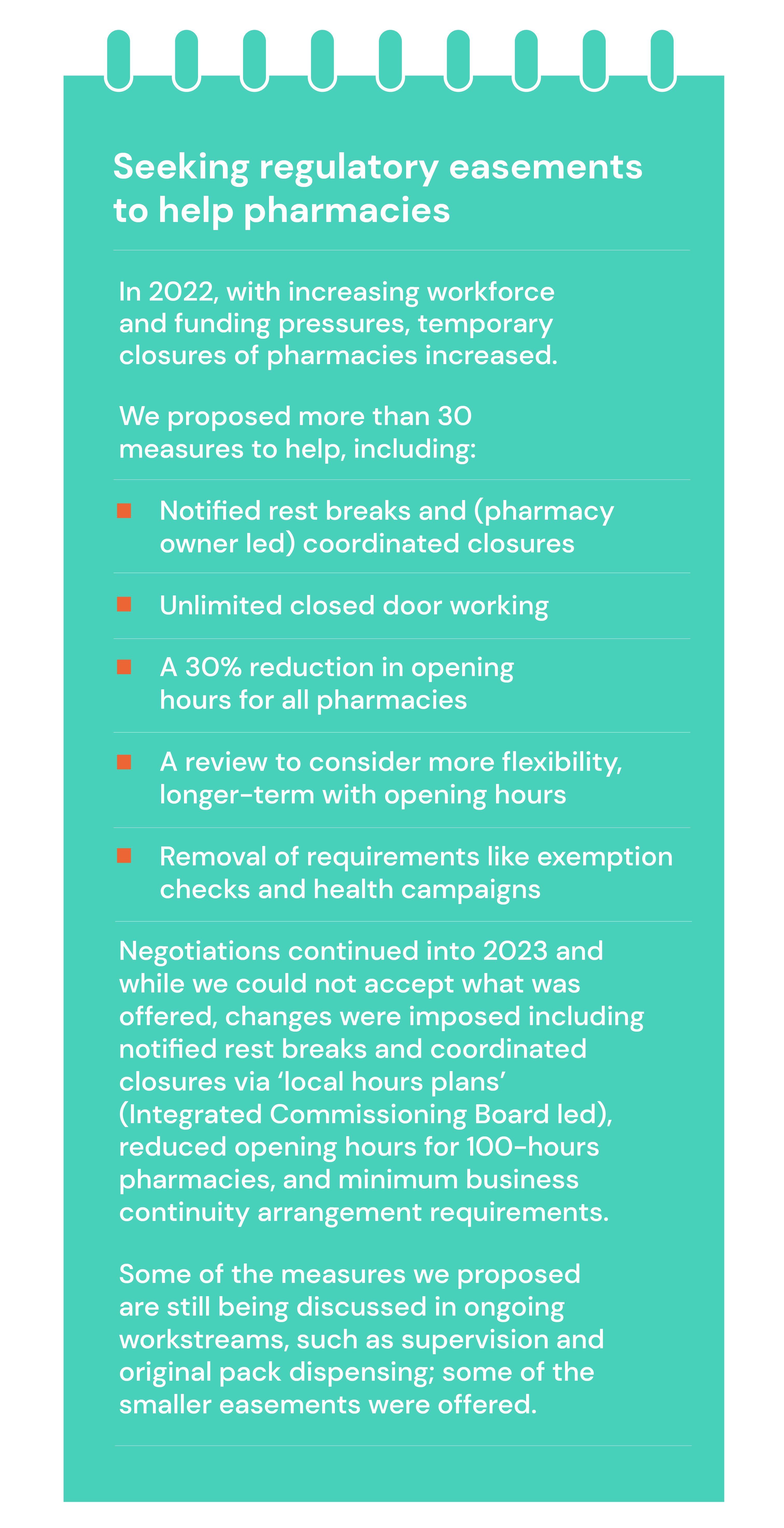
Funding crisis deepens
By February 2023, the tough winter period had taken a toll on pharmacies with the worsening economic pressures now being exacerbated by spiralling workforce costs, dispensing at a loss, inflation and rising demand from patients. In reviewing proposals from DHSC and NHS England on price concessions and relief measures, our Committee rejected both as being insufficient to meet the sector’s needs.
This was swiftly followed by our warning that Year 5 CPCF services could not go ahead without a funding uplift.
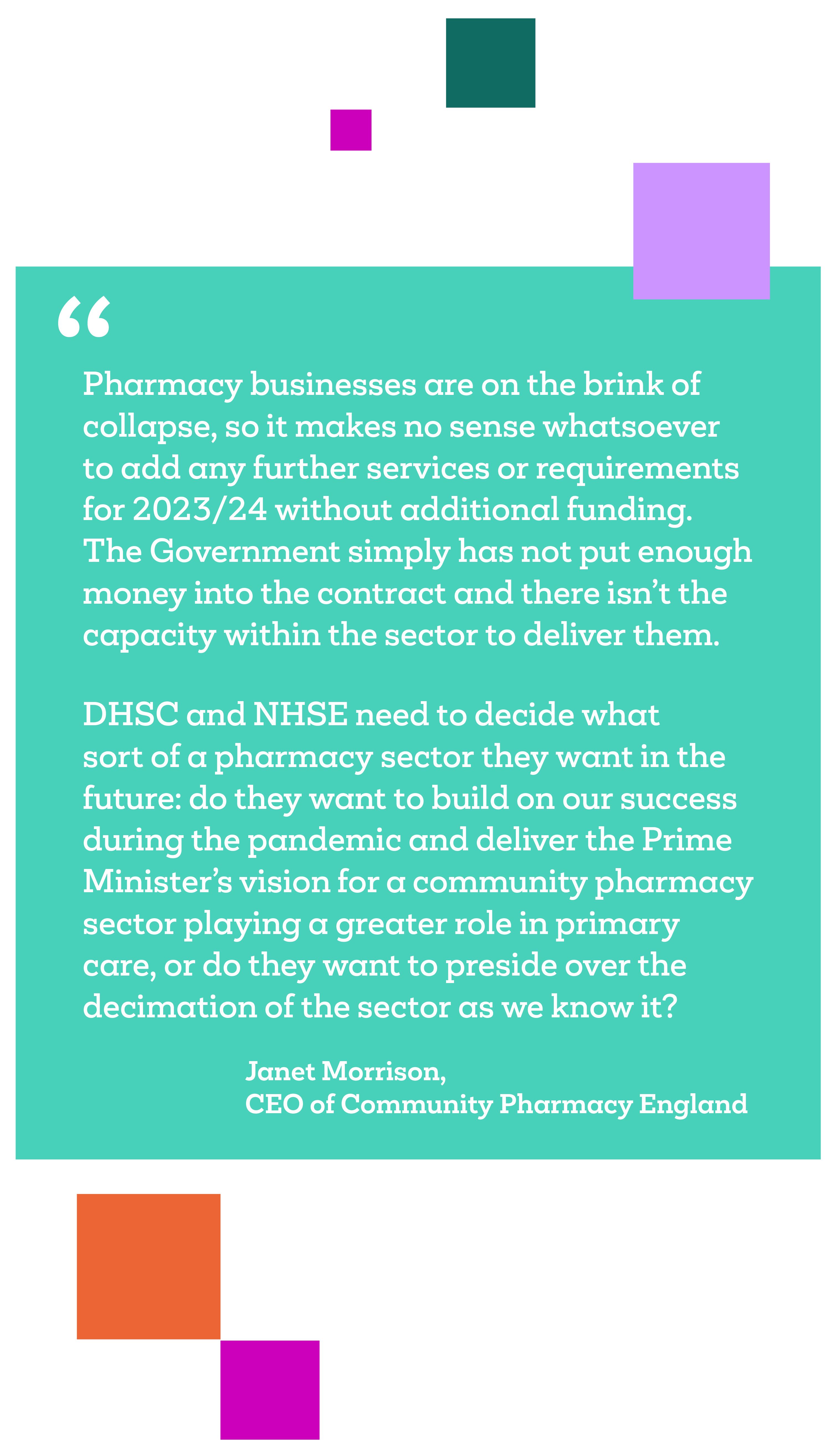
Our influencing programme made good headway with Ministers and other decision-makers. And we were clear that without an urgent injection of funds into the sector, any development of the role of community pharmacy would be a pipedream. Our 2023 Pressures Survey confirmed the worsening situation for community pharmacies, with 96% of pharmacy owners reporting that their operating costs had continued to rise and more than three-quarters were extremely concerned about their business’ finances.
We publicly shared documents detailing our latest funding analysis and proposed regulatory easements that had previously been submitted to NHS England and DHSC. We urged policymakers to prioritise supporting community pharmacies and to introduce a fully-funded Pharmacy First scheme for enhanced patient care, and much-needed funding for the work that many pharmacy teams are already doing.
Our unrelenting campaigning work – both in public and behind closed doors in negotiations and wider discussions - continued, and shortly after the financial year-end, on 9th May 2023, the Government and NHS committed to a record £645 million investment into community pharmacy - the biggest investment in pharmacies for many years. The final outcome of this is subject to negotiations with the Government and NHS.
Fairer reimbursement
Our Funding and Reimbursement Team work hard to ensure that pharmacy owners are being paid fair prices for medicines, that prescriptions are processed accurately, and that the sector receives all of the purchase margin that it is allowed to earn.
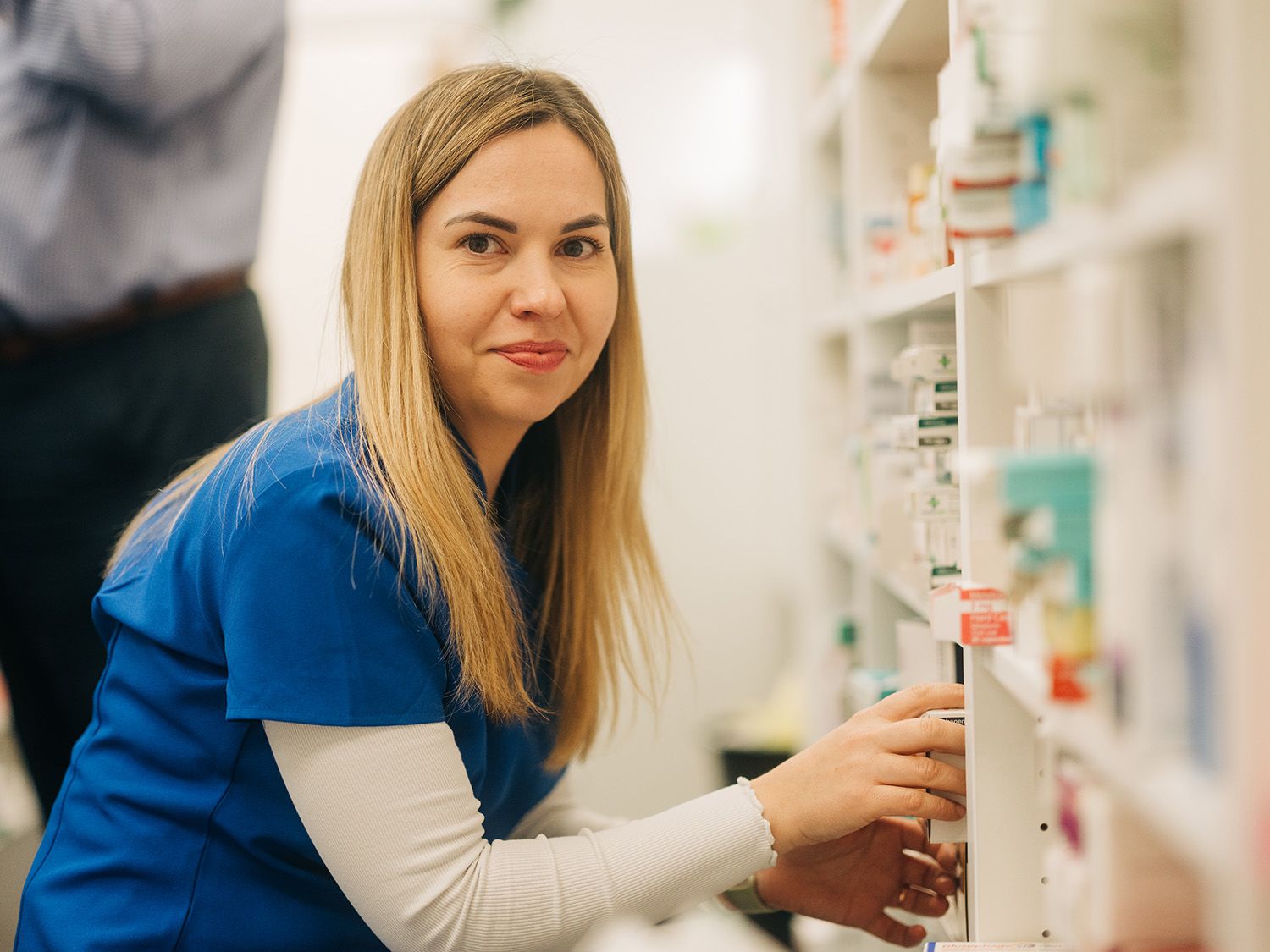
With medicine market instability at an all-time high, nearly 200 price concessions were granted in December 2022 alone, and over 1,700 in 2022/23. The situation was exacerbated by antibiotic shortages following a Strep A outbreak, and we pressed DHSC to urgently issue more communications about the situation to help resolve the issues, and to consider allowing pharmacists more freedom to change strengths.
Having raised concerns that the price concession system was no longer fit for purpose, we secured a commitment from DHSC to review and make much-needed improvements to it. This led to the development of a package of measures, including removing discount deduction from concession products, allowing a roll-forward for products requested late in the month, and perhaps most importantly, working on a retrospective correction mechanism for prices subsequently demonstrated to be wrong.

Following years of frustration in the sector about how discount deduction is applied to products, new discount arrangements were introduced to improve equity of access to margin and to help manage the distortions created by branded medicines.
As a result of our Pricing Audit Team’s efforts, £131 million worth of corrections and adjustments were made to the Margin Survey. The 2023 Spring Budget extended the VAT exemption for healthcare to include services carried out by staff directly supervised by pharmacists, and indicated that the Government will also extend the zero rate on prescriptions to medicines supplied through Patient Group Directions.

Our team reviewed thousands of products at an individual level to seek to ensure that DHSC concession pricing meant that pharmacy owners were not dispensing at a loss. We successfully pushed for retrospective price adjustments for products such as Aptamil, Venofer, Ferinject, Promethazine, and lifesaving medicine EpiPen. Meanwhile, our applications led to 158 products joining the Discount Not Deducted (DND) list – including Dexcom appliances – while 43 products received special container status.
Our commitment to patient safety, as well as to making life for pharmacies easier, led us to collaborate with the Neonatal and Paediatric Pharmacists Group (NPPG) and the Royal College of Paediatrics and Child Health (RCPCH), advocating for standardising strengths of select Part VIIIB specials.
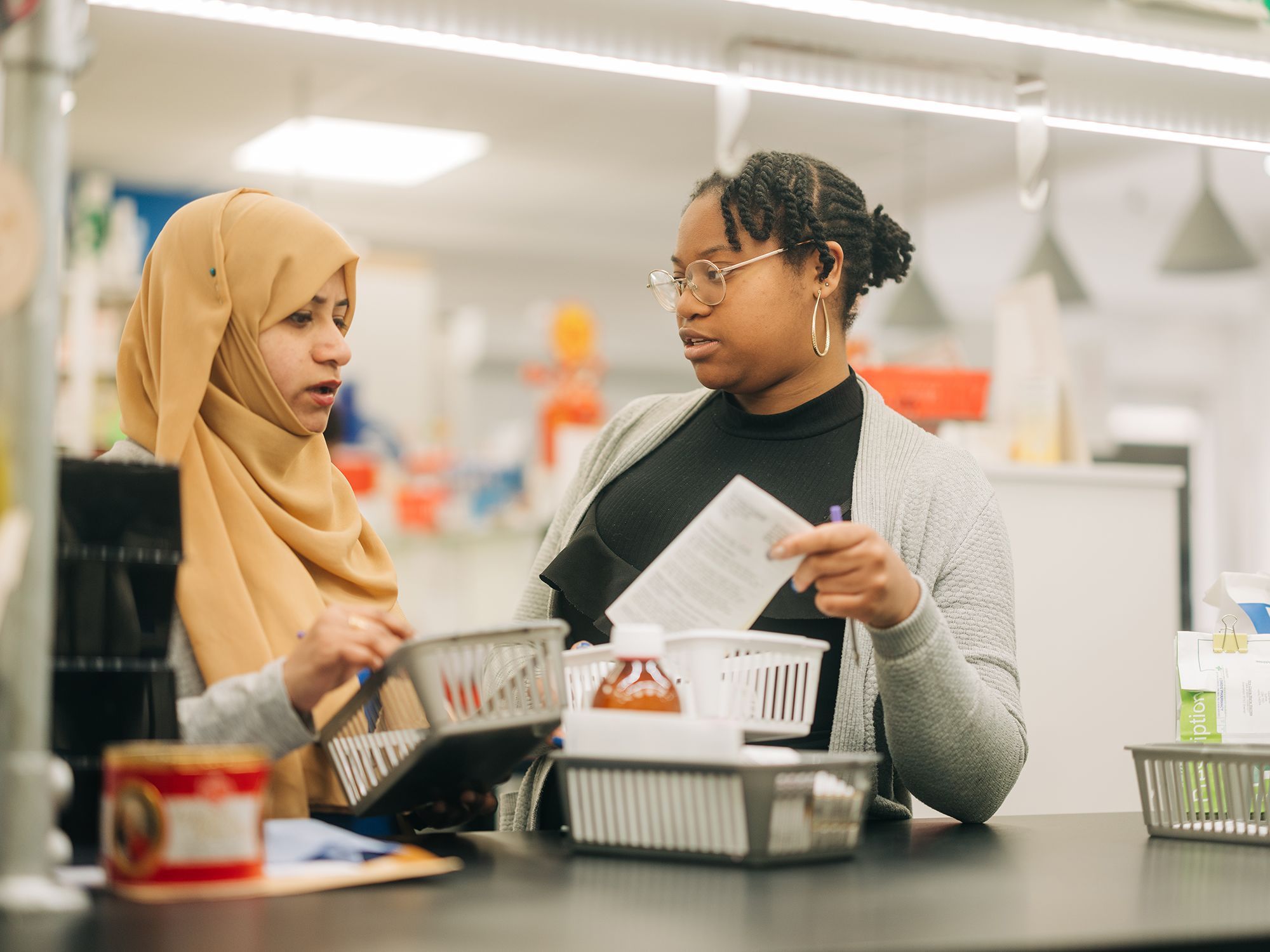
Changing for the better
Delivering on the mandate for change from pharmacy owners.
Following the publication of the independent review into PSNC (as we were called at the time) and LPCs, the Review Steering Group (RSG), established by PSNC in discussions with LPCs, worked to assess the feasibility of the recommendations and propose a path to change for PSNC and LPCs as representatives of pharmacy owners both nationally
and locally.
In April 2022 the RSG published its proposals for change, and in June 2022 it announced that the thresholds for its contactor vote on the future of PSNC and the LPCs had
been met.
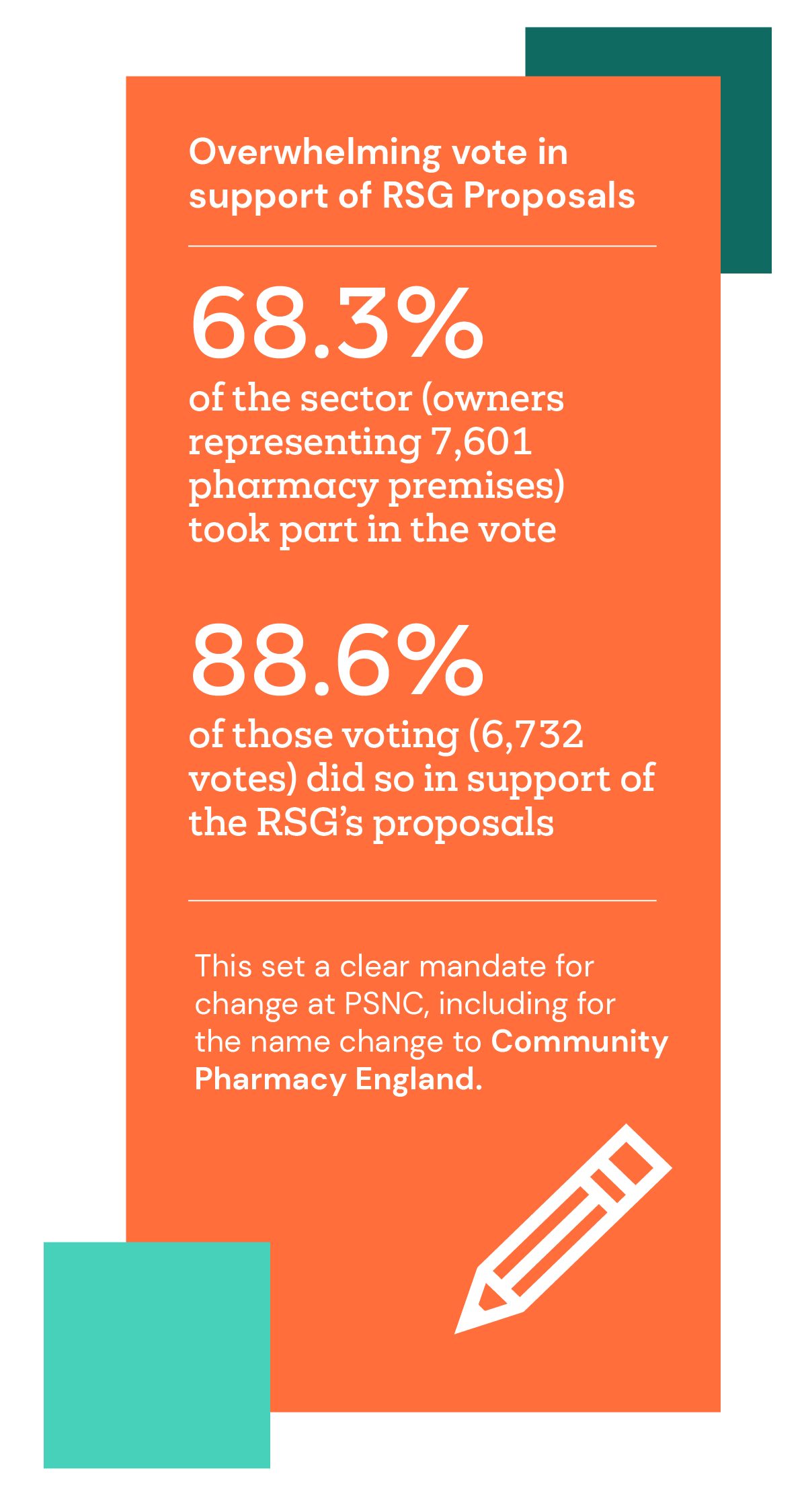


Transforming pharmacy representation
Our committee met early in July 2022 – two weeks after the outcome of the RSG vote was announced – and agreed to take forward a comprehensive new programme of work to address the 21 RSG proposals that were directed at our organisation. Alongside that, the Committee reaffirmed its commitment to supporting LPCs through the proposed changes for them, and to working together with LPCs through to 2024/25 on the ten joint proposals.
We set up the Transforming Pharmacy Representation (TAPR) Programme, whose overall progress has been overseen by the full Committee, to ensure that the changes pharmacy owners voted for are delivered. This was with the ultimate aim of ensuring that pharmacy owners have a better relationship with (and more oversight of) our organisation, helping us become a stronger national negotiator.
Work to take forward the programme through eight key areas from July 2022 to 2024/25 began including:
1. Vision and Strategy: Covering the development of a new shared vision for community pharmacies which can be used to inform wider pharmacy influencing work and negotiations: Nuffield Trust and The King’s Fund were commissioned to develop this vision.
2. Influencing and Negotiation: To strengthen our negotiating capacity and to influence effectively ahead of the next round of CPCF negotiations. We launched an impactful new political influencing campaign in late 2022.
3. Governance: The RSG made wide-reaching proposals to strengthen governance at PSNC and the LPCs, and this workstream started to deliver governance enhancements to address these. An independent review into the governance of Community Pharmacy England was also launched.
4. Finance and Levy: The RSG proposed a redirection of a greater proportion of pharmacy owner levies towards national work, so new LPC levies were calculated.
5. LPC Support: We committed to the production of a toolkit to support LPCs to consider the proposed changes for them and worked with LPCs on the joint proposals throughout the year.
6. Engagement and Joint Working: Exploring how we could improve engagement with pharmacy owners, giving more oversight of our activities, as well as the ongoing relationship with LPCs including through the proposed Forum, and wider joint work. This work is ongoing, with Community Pharmacy England’s new sector engagement plan having now launched.
7. Branding and Visual Awareness: Work to rename (and rebrand) PSNC as Community Pharmacy England has been completed.
8. Communications: Ensuring communication of progress on all of the above workstreams on a regular basis, including via status reports.
Other Committee and Governance highlights
In September 2022 the Committee progressed work to enhance its negotiating capacity, strengthen its governance, develop plans for a new vision and strategy for the sector, and more, in line with the TAPR work programme.
Committee Members considered and voted on improvements to our Constitution and to reduce the Committee size to have a more effective structure, including consolidating PSNC regions to more closely align with the NHS.
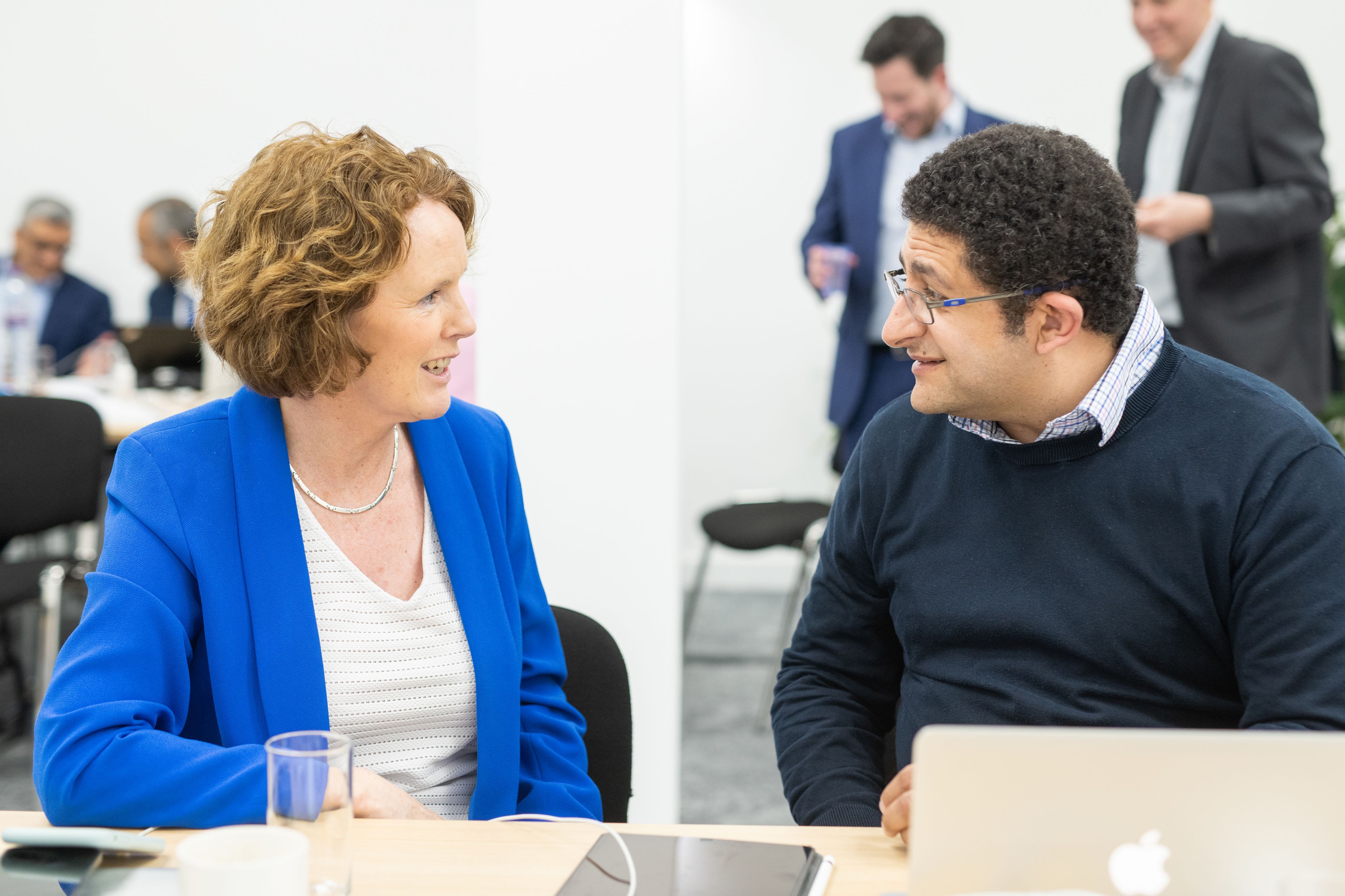
Between January and March 2023 elections were held to appoint a new committee for a term of office between 2023-2027. This included new independent and multiple representatives to govern the work of the organisation on behalf of pharmacy owners, providing leadership and vision, and representing views of pharmacy owners and LPCs in England.
Steps were also taken to increase our influencing capacity, with the appointment of a political campaigning agency following a tender process. This work began to support the case for increasing in funding, a common conditions service, while also putting community pharmacy in a stronger position ahead of future Community Pharmacy Contractual Framework (CPCF) negotiations.
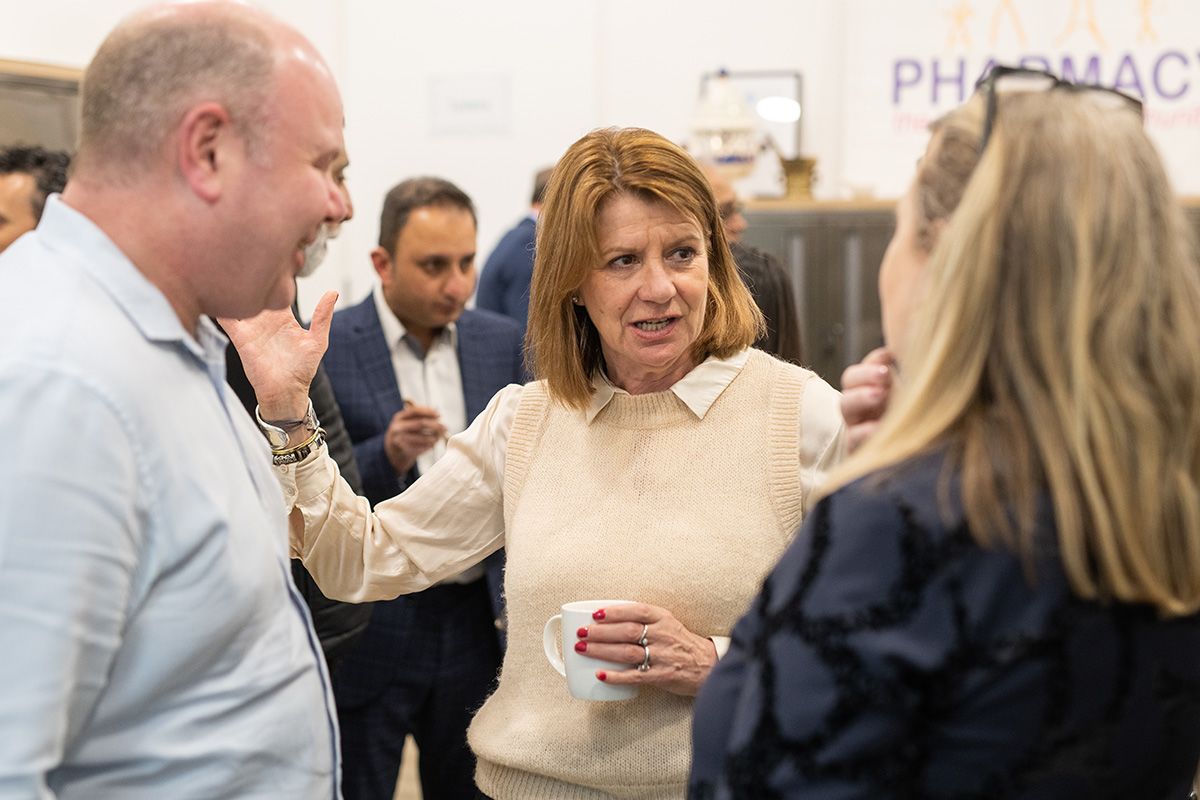
LPC changes
Our Director of LPC and Member Support worked with LPCs and pharmacy owners in implementing LPC proposals to increase the efficiency and outcomes across the network of LPCs in England. This included the provision of specialist hands-on guidance, facilitating support for LPC members and officers, to promote implementation of the RSG proposals, best practice and challenging the status quo.
We spent much of 2022/23 supporting the network of LPCs to undergo the changes, through the provision of a new model constitution, three transformation toolkits and the commissioning of standardised employment policies, procedures and advice.

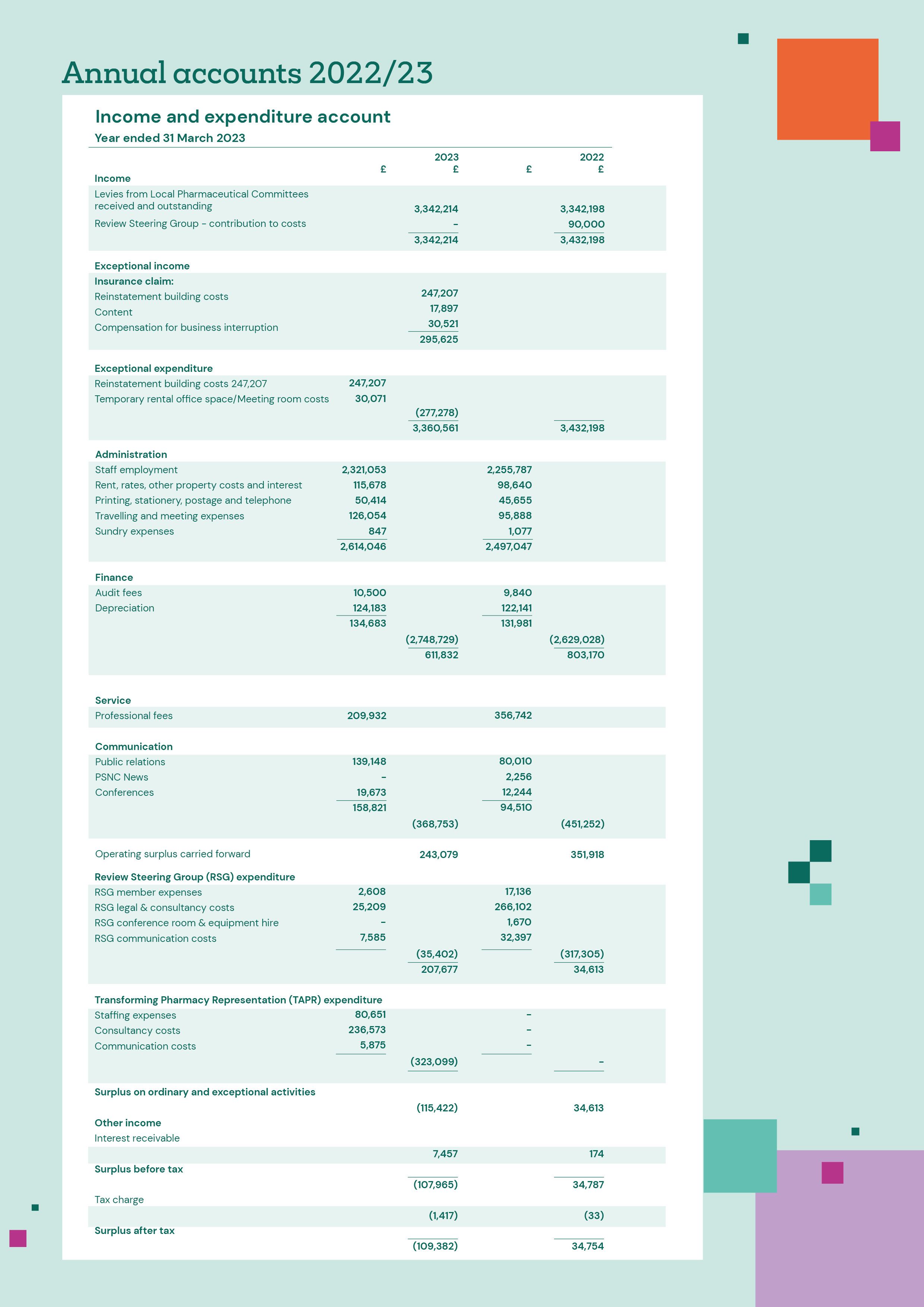
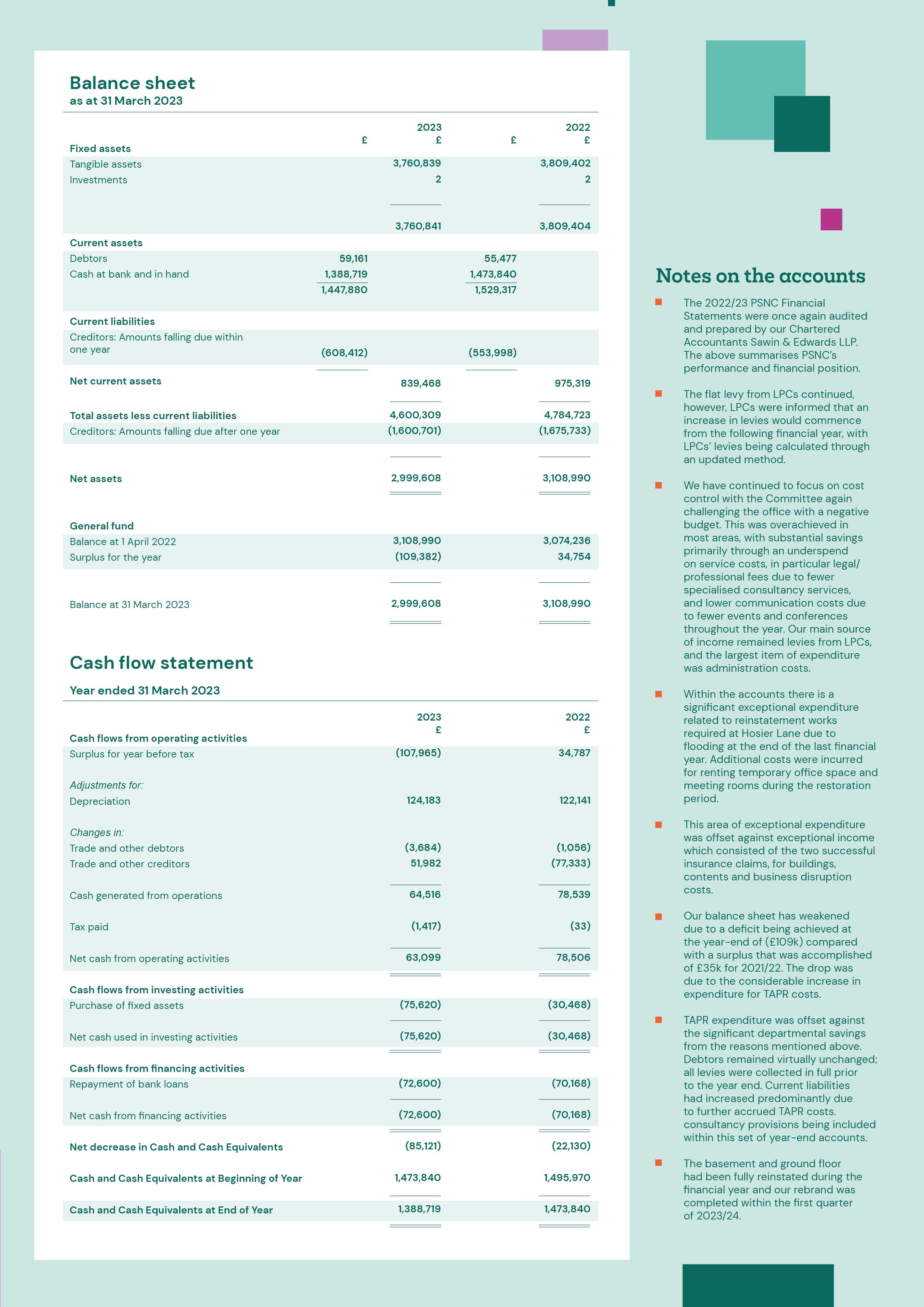
Safeguarding pharmacy's future
Dedicated to securing the support, resources and funding needed to safeguard pharmacy’s future.
Throughout 2022/23, alongside the immediate negotiations on the CPCF, we have been working to lay the ground for subsequent negotiations. This included work to influence the Primary Care Recovery Plan – which led to a commitment to a £645m investment in community pharmacy. We also campaigned jointly with other bodies on pharmacy pressures and have been preparing for the next round of negotiations on the CPCF. These will be for the 2024/25 contract – after the 5-year deal ends – and will be influenced by the 2023 Spending Review.
The next General Election will influence any future negotiations so engaging with all political parties is a key priority for the year ahead, as is working with GPs and others to jointly make the case for more investment into primary care. The NHS economic review, which we are working to influence, will also come into play.
At the time of writing, the Committee has been exploring potential asks for the 2024/25 CPCF, including seeking the views of the wider sector via opinion polls. We will be asking for an uplift to the baseline contract sum, higher fees for existing services and an uplift to the allowed medicines margin. We are continuing to build our evidence base around economics and value, alternative funding mechanisms, inflationary impacts and margin, to help support all of this.
The constraints on public finance and the state of the wider NHS will not make these easy negotiations – GP negotiators believe no new money is coming. But our Committee are thinking strategically about how we can further make our case for investment, warning about the consequences of closures, whilst still positioning the sector as a solution to some intractable NHS challenges.
The independent vision from Nuffield Trust and The King’s Fund has provided a compelling vote of confidence in the sector as well as its potential. It will help inform Community Pharmacy England’s strategy and be key to how we build the case for developing a contractual framework fit for the future. Initial planning work has already begun on the development of the Community Pharmacy England strategy and developing this will be a key priority for the coming months, as well as looking at how to strengthen our own governance and functions through the ongoing independent governance review.
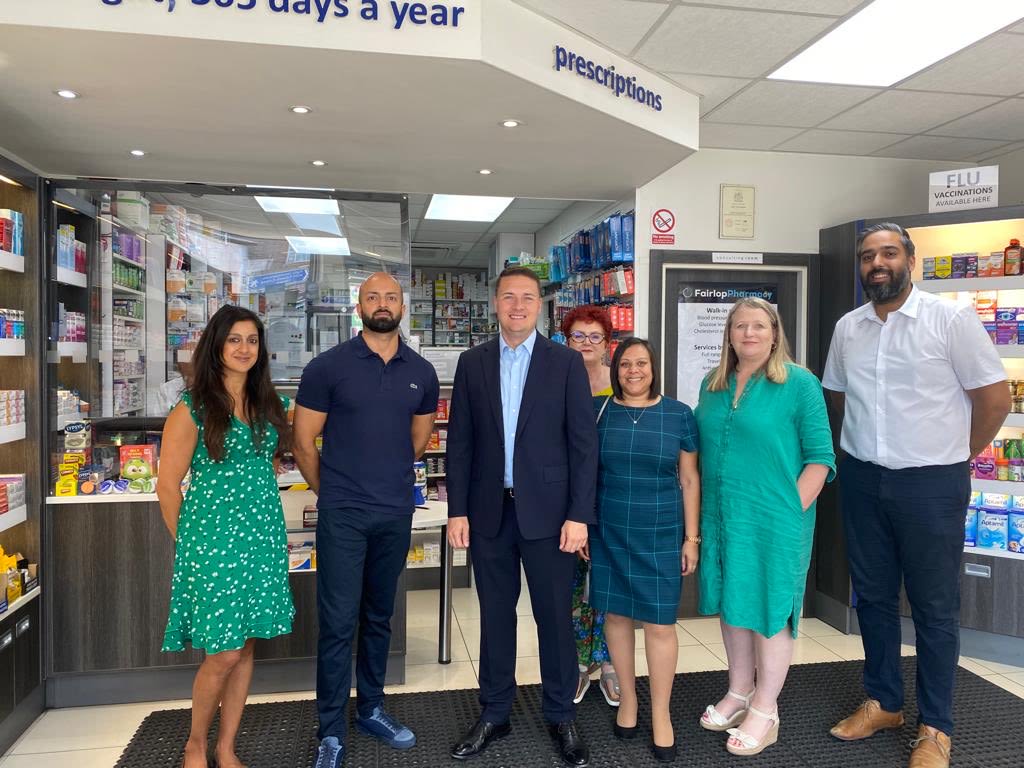

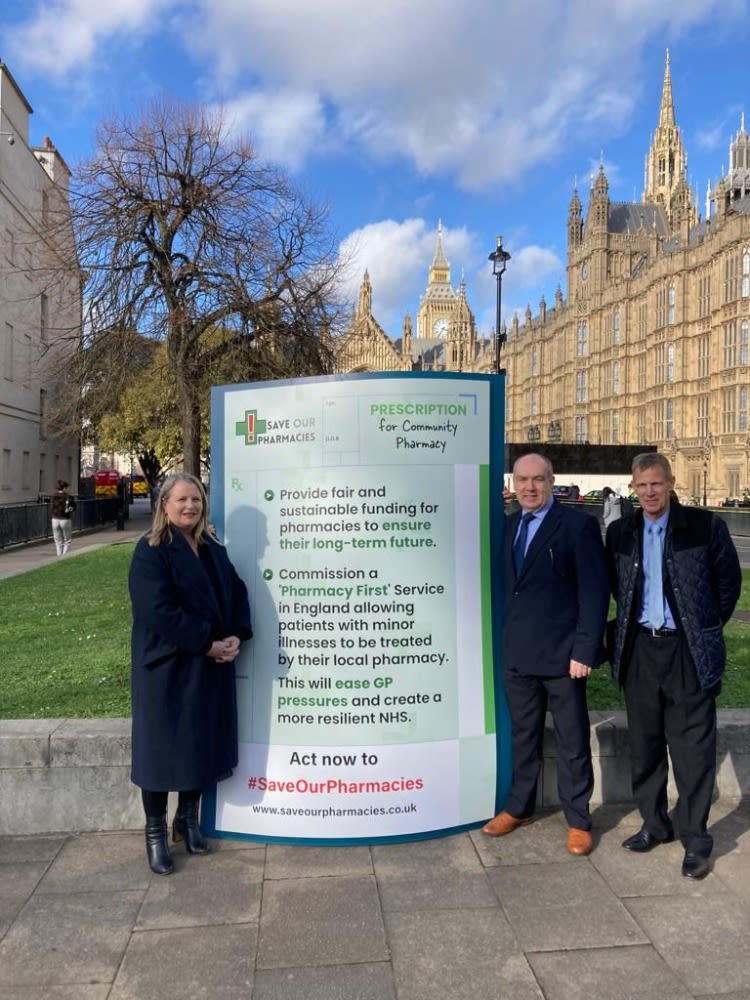
Visit: cpe.org.uk
Telephone: 0203 1220 810
General enquiries: cpe.org.uk/contact-us
Press/Media Queries: comms.team@cpe.org.uk
Address: Community Pharmacy England,
14 Hosier Lane, London, EC1A 9LQ


